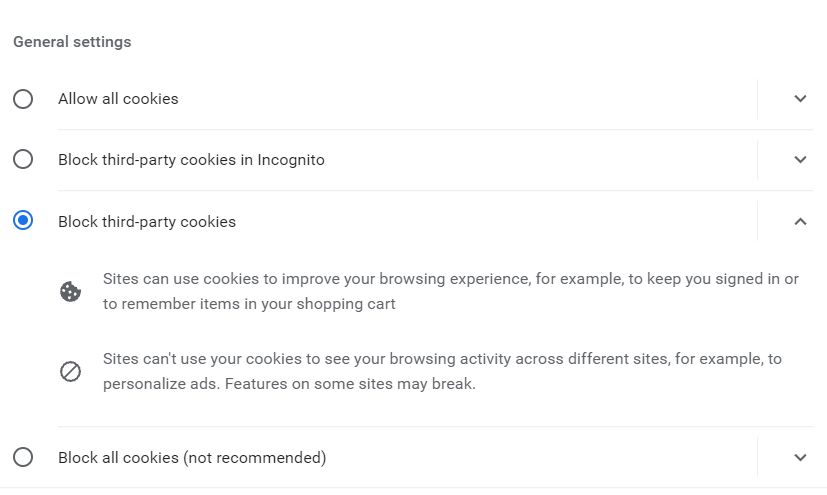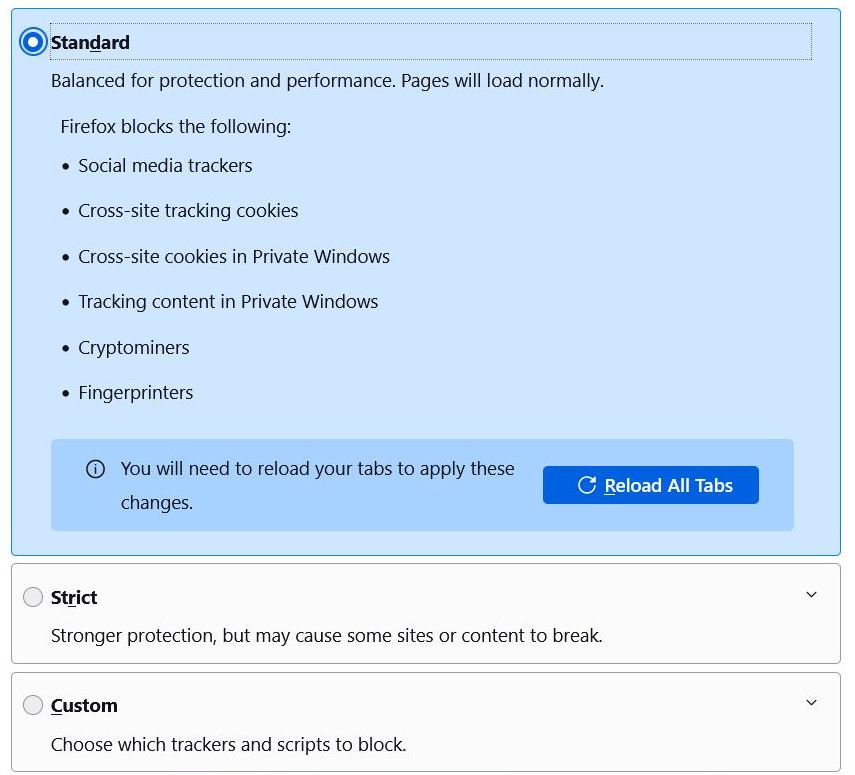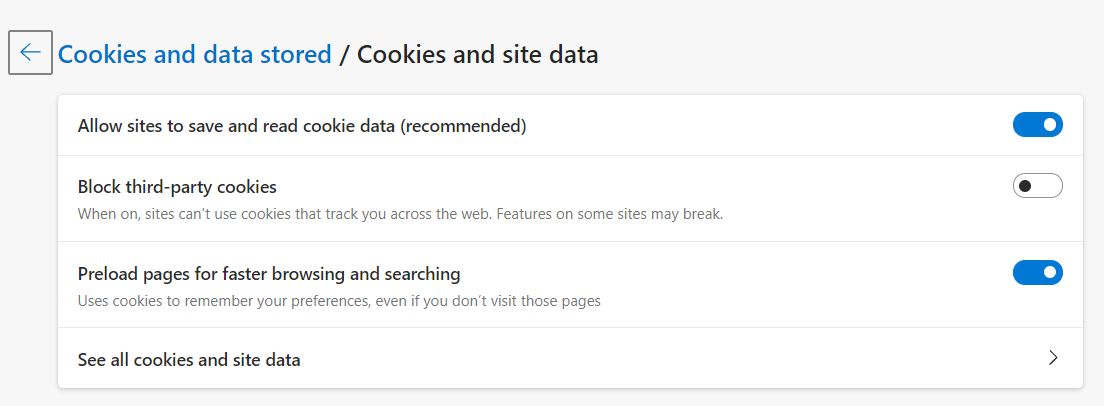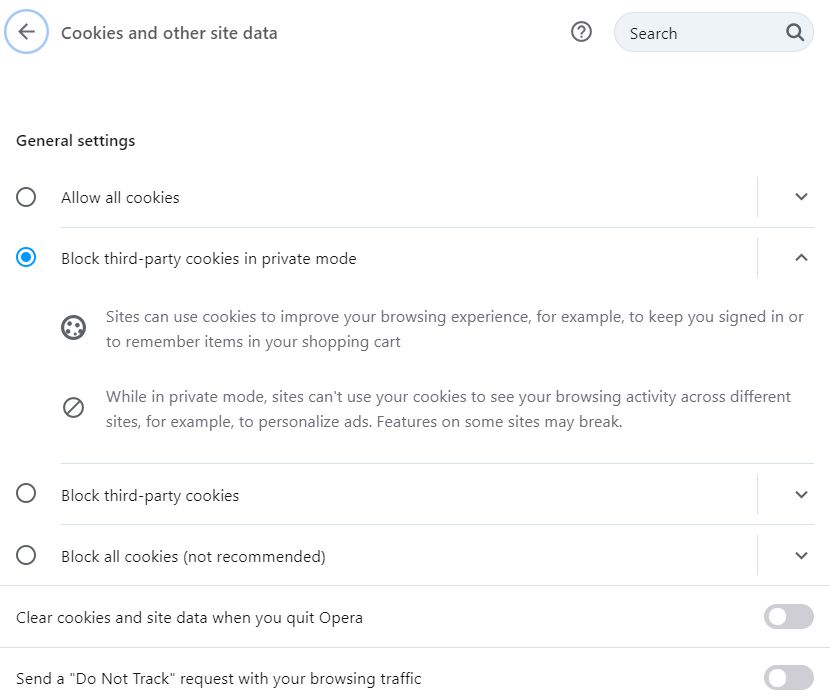Getting customer information without third-party cookies
Third party cookies have fallen out of favor with the Internet world, and will continue to do so until 2023, when Google Chrome will block all third-party cookies from its most popular browser. Firefox and Safari have already blocked them.
Third-party cookies and their fall from grace
Cookies are those small, invasive bits of code that get added to your browser when go visit websites. They can collect information about your browsing preferences, and other personal information, relaying them back to the mothership or the website that owns those cookies.
- First party cookies are owned by the website that you are visiting, and they are used to make your browsing experience better when you visit them again.
- But third-party cookies are owned by somebody other than the website owner. The website owner might allow ads on their pages, which can place cookies on your browser.
- The information collected about a person is conveyed to a number of advertising and marketing companies that can use that information to create a near accurate description of you.
- This information can be used to target ad specifically for you, or even transferred to others who would use that information to understand you better.
Sounds scary? Yes, it does. The deep, dark world of Internet is rife with invasive codes, and a complete disregard for privacy.
With GDPR and many other regulations that give a lot of importance to confidentiality and privacy of information, the web world is now on the way to doing away with third-party cookies altogether.
Alternatives for Third-party Cookies
Since marketers and advertisers need information about their target audience, they are constantly on the lookout for other ways to collect information, without interfering with a person’s privacy. Here are some of the alternative options:
- 1. First-party cookies
-
First party cookies will continue to be relevant, and may even become more sophisticated in the coming years. Since they belong to the website you are visiting, and will not follow you into other websites, the information is reasonably contained.
- They can make your browsing experience better.
- They can remember passwords and language preferences.
- They can retain things in your cart in an ecommerce website.
- They can suggest books/movies based on your previous views.
- 2. Privacy sandbox
-
Google’s privacy sandbox, launched in 2019 aims to build a more private web. This system for which Google has published a very detailed timeline will use innovative methods like FLoC(Federated Learning of Cohorts).
FLoC divides people into cohorts based on their behavior, interests, and preferences, grouping people into broad groups that can be targeted by advertisers and publishers. This is less invasive than since it groups information, rather than focusing on characteristics of individuals.
- 3. Fingerprinting
-
This is not a good alternative to third-party cookies, since fingerprinting puts together a unique identity for each person, by collecting a range of information like device type, browsers, resolution, plugins, IP, time zone.
Though they seem very unobtrusive, a number of these small nuggets of information can be stitched together to form a very accurate identity for an individual.
- 4. Unified ID 2.0 by The Trade Desk
-
Unified ID 2.0 aims to create a unique ID for each person browsing the web, using an email ID that’s provided right at the beginning to sign in. Users have the freedom to provide their information on websites that support Unified ID 2.0, through a consent box.
The email ID itself is stored in an encrypted manner so that the information cannot be tied back to a specific person, giving the users some much-needed privacy on the web.
- 5. URL tagging parameters
-
This is a simple straight-forward solution to collecting information about visitors to your website. When we think about UTM parameters, the most common terms that come to our mind are source, medium and channel.
Agreed that these are the most commonly used, but there is wealth of information that can be captured in UTM parameters, like the keywords, type of campaign, type of link, geography, product type, category and more.
If you would like to know how to gather valuable customer information using URL parameters, reach out to CampTag. Our marketing taxonomy and UTM builder platform can make you marketing analytics more efficient, and error-free.
- 6. Intermediary platforms
-
There is a possibility of the formation of middlemen, or intermediary platforms where websites can upload their first-party cookie data. This intermediary can then distribute this data after anonymizing it, so that customers can only be targeted based on their interests, and not based on their unique identity.
This would need customer approvals to use their data for specific targeting, and also trusted intermediaries that can ethically collect and disseminate information about customers.
- 7. Contextual advertising
-
Already being used by Google display network, this system will display ads on websites that are contextually similar to the keywords that the advertiser wants to focus on.
Though contextual targeting is not very accurate, this gives complete privacy to users since the advertising is based on page content, and not based on the user’s demographics or preferences.
Once you are familiar with third-party cookies, and how invasive they are, you might want to escape from them right away. Here is how you can do it.
CAUTION: Blocking third-party cookies might affect your browsing experience, and also the performance of some software that you use. Beware of these before you disable third-party cookies.
Blocking third-party cookies in your browser
Different browsers already give you the option to block third-party cookies. Firefox and Safari has already been blocking third-party cookies through their browser and security settings.
Google Chrome
Under Settings, go to ‘Cookies and other site data’. You have the option to Allow all cookies, Block third-party cookies in Incognito, Block third-party cookies, or even to Block all cookies, though this is option not recommended by the browser.

Mozilla Firefox
Firefox offers Standard, Strict and Custom protection options for users to decide what trackers and cookies to block, under Settings, ‘Privacy and Security’ option.

Microsoft Edge
Settings, ‘Cookies and site permissions’ gives you the option to Block third-party cookies in Edge browser.

Opera
Under Settings, Advanced, Privacy and Security, ‘Cookies and other data’, there are options to Allow all cookies, Block third-party cookies in private mode, Block third-party cookies or Block all cookies, very similar to Google Chrome.

Marketing taxonomy and UTM tagging
If you would like to utilize the benefits of standardized marketing taxonomy for your campaigns, please contact Camptag today, for a demo.
You could also take a free trial of our awesome tool here.